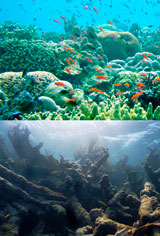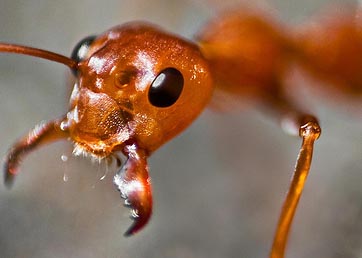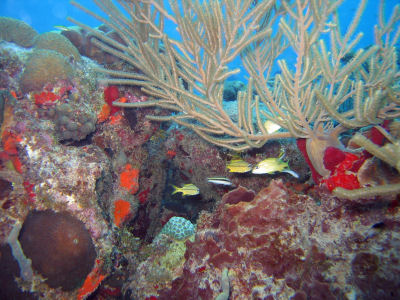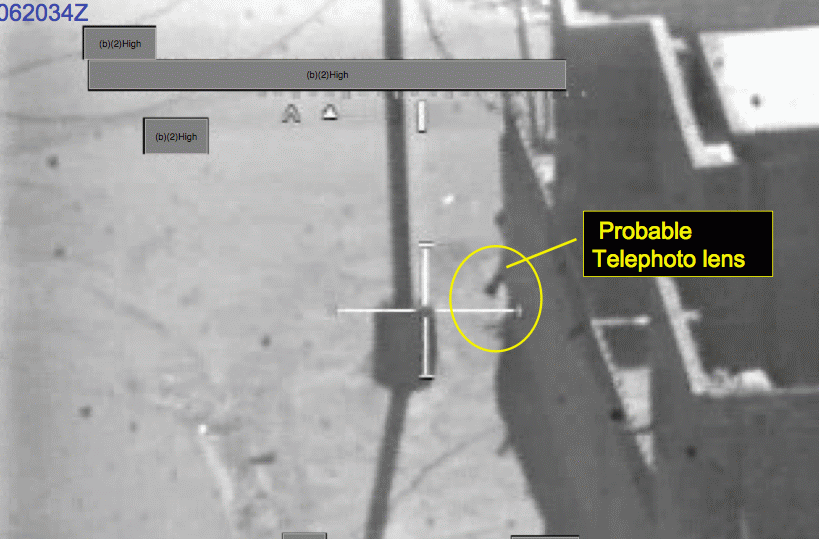“Those who think of themselves as great fans of progress, of technology’s inexorable march forward, will change their tune as soon as progress destroys something they care deeply about,” writes Nicholas Carr.
All Articles
Extensive research over the past 40 years shows that sleep deprivation is a quick, inexpensive and effective treatment for depression. So why isn’t this fact more well known?
Tuesday’s court ruling, which found that the Federal Communications Commission does not have jurisdiction over how internet providers regulate their service, has sent the FCC’s national broadband plan back to […]
The director of the census bureau in charge of marine species, called the Global Marine Species Assessment, has issued a warning about the deterioration of earth’s coral reefs. It was […]
Here’s a story about balancing work and family, as recounted recently by Teddy Kennedy: One day in 1961 John F. Kennedy was comforting his crying daughter at the family’s Hyannis […]
Vinod Khosla, founding CEO of Sun Microsystems and founder of Khosla Ventures, is on record as having said that he can’t imagine oil being more than $30 a barrel by […]
Like many kids in the 80s, I was convinced I would die in a nuclear war. Dialogue between the United States and the Soviet Union had broken down after the […]
Via Gawker we learn that a New York judge reaffirmed a guy’s right to demand the ring back if the engagement breaks off for any reason. In the case before […]
Insects have long been objects of fascination in classical literature, children’s nursery rhymes, and in the culture at large. Hugh Raffles’ interest in insects stemmed from his work in the Amazon, […]
An FBI Special Agent impersonated a representative of a real, legal anti health care reform group in order to positively identify a Washington man who allegedly left a series of […]
Some of the most arch realists and high-ranking Cold warriors in the US foreign-policy establishment are supporting the idea of a nuclear-free world. But is it actually attainable?
Scientists in the Philippines say they have discovered a new species of giant lizards with bright yellow, blue, and green skin, that lives in the forests and survives on a fruit-only diet.
Researchers have found three new species that apparently spend their entire lives in the oxygen-starved sediment at the bottom of the Mediterranean Sea.
Physicists have developed the smallest electrically pumped laser ever, with a beam that is 30 micrometers long, eight micrometers high, and has a wavelength of 200 micrometers.
“Contrary to expectations and lamentations, widespread piracy does not kill commercial filmmaking,” writes Kevin Kelly. “Existence proof: the largest movie industries on the planet.”
Eating more fruits and vegetables appears to do little to reduce the incidence of cancer — despite decades of exhortations from the World Health Organization that people do so.
Noting Sarah Palin’s meandering phraseology, John McWhorter wonders why mindless speaking no longer prevents someone from becoming a major public influencer.
Robert Wright believes Tiger Woods’ sexual behavior represents a threat to the moral sanction that is vital to the institution of monogamous marriage.
Faced with climate change, some birds are changing their migration schedules and staying closer to home — and in the future they might stop migrating altogether.
A team of Russian and American scientists reported yesterday that they had discovered a new — and very heavy — element, which will be known for now as ununseptium.
Warming world, warming waters, coral reef die-off. You know the drill. But until recently, marine biologists knew relatively little about what exactly was going on, on the bacterial level, when […]
According to Peter Diamandis, founder of the X Prize Foundation, the cost of getting you and your spacesuit into orbit could soon be about $120. That would mean a price […]
WikiLeaks.org has released graphic video of a U.S. military attack in Baghdad on July 12, 2007 in which twelve people were killed, including a Reuters photographer, Namir Noor-Eldeen, and driver, […]
Comcast can decide which of its customers can do what on the Internet. A federal court ruled on Tuesday that the Federal Communications Commission (FCC) doesn’t have the authority to […]
Americans continue to believe in race—“kind of like [how] people believe in witches,” says Princeton historian Nell Irvin Painter. Yet the concept of race as we know it didn’t develop […]
Finally, someone has taken the (necessary) contrarian view: Tiger’s nothing new. Furthermore, his public “shaming” and highly planned apologies are products, like tennis shoes–ones we might consider feeling shame ourselves […]
A study says that the lives of 900 American babies — as well as $13 billion — could be saved each year if their mothers simply continued to breastfeed them through their first six months of life.
An amber deposit found in Ethiopia includes the fossilized remains of Cretaceous era ants, spiders, wasps, and bacteria, and is providing new information about how those species lived.
Research suggests that a gigantic network of offshore wind power stations along the Eastern seaboard could potentially provide energy to a large swath of the U.S. without much threat of outages.
The burgeoning field of animal personality research seeks to figure out why individual members of a species are so unique — and why they remain so through their entire lives.













